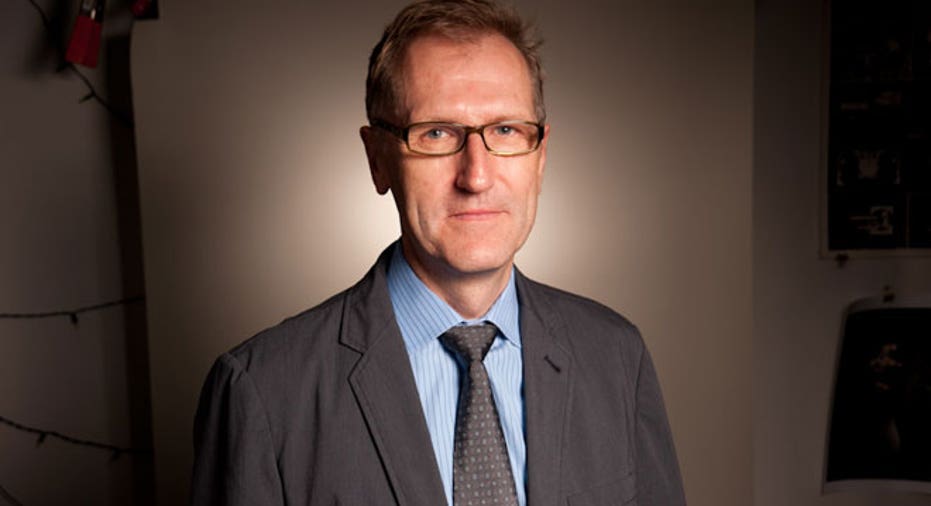How to Be a Rogue Trader

Becoming a rogue trader is easier than you think, and now there's a handy little ebook to show you how to do it: "How To Be a Rogue Trader," by Financial Times columnist John Gapper, published by Portfolio/Penguin on Friday.
Maybe you want to impress your friends and family with an enormous, but undeserved, year-end bonus.
Or maybe you'd just like to take a big bite out of a major world bank like Kweku Adoboli, who allegedly lost $2.3 billion trading for UBS AG (NYSE:UBS) and was arrested in September; or Nick Leeson, who brought down the 233-year-old Barings bank with a GBP830 million loss in 1995, at age 28.
"We have become so used to rogue traders that, no matter how severe the shock to the banks involved, it is no longer a surprise when another one appears," Gapper writes.
To become a rogue trader, you need not have attended an Ivy League school. You need not have come from a wealthy family. In fact, it's better to have a chip on your shoulder about your relatively impoverished past. It keeps you hungry and steels your highly evolved aversion to risk aversion.
Gapper says it's also best to start your career in the back office, where you learn how the trades are supposed to be reconciled and befriend the people who are supposed to do that. Then, once you are promoted to the trading floor, you'll find plenty of economic incentives to trade aggressively, double down on losses and then conceal the losses when the ill-advised doubling down goes south.
Along the way, you will learn to enter fake trades and cancel them before they are checked in the back office. And you also will learn many simple but effective accounting tricks, playing with the valuations of exotic securities.
You will be amazed at how willing your bosses may be to look the other way on violations of trading policy as long as you appear to be making money, Gapper writes. They may not complain about sloppy accounting because, despite all the talk about tough financial controls, the whole place has incredibly sloppy accounting.
It also helps to be charismatic, but the bosses may tend to believe any fake gain you tell them about because, well, they want their year-end bonuses, too.
"Rogue traders exploit the gullibility of their bosses by producing low-volatility returns, which is what every bank craves," Gapper writes. "They do not appear to be reckless gamblers; they seem to have solved the conundrum of finance, that high rewards involve high risks. It is so enticing that no one realizes it is too good to be true."
It's so good, why not leave it alone until the losses mount into the billions and threaten the continued existence of the entire firm?
"The simplest thing you can do is follow the money," Gapper said in a telephone interview. "It's a weird thing that banks, after all these years, keep falling into this trap.
"A lot of this stuff is extraordinarily simple. A lot of times, rogue traders are just putting on fake trades and canceling them. And they are taking advantage of these little gaps in the reconciliation system," Gapper said.
The most-difficult part about being a rogue trader is dealing with the growing pressure that comes with the game. "Most of us, if we were a couple of billion down, we'd have a hard time carrying on," Gapper said.
Leeson resorted to over-eating, stuffing his face with candy. David Bullen, who cost the National Australia Bank AU$360 million in 2004, became a Buddhist. "He tried to convince himself, religiously, that it just didn't matter," Gapper said.
But most rogue traders do not have the composure of a Bernie Madoff, who ran a Ponzi scheme for decades and didn't seem the least bit bothered by it, Gapper said. They can, however, easily blend into a crowd on a trading floor where everyone seems to be nervously playing a vicious game.
"This sort of behavior is absolutely common on trading floors," Gapper said. "The difference is, does it stop after a few hours, or does it stop after a day or two? The weird thing with rogue traders is that they just carry on....You can't just say they're like everybody else. There's something freaky about them."
Life after rogue trading typically involves prison and writing a book, like Jerome Kerviel, who concealed an unthinkable EUR4.9 billion loss at Paris-based Societe Generale until 2008.
"To the fury of those who failed to catch him, Kerviel quickly became a cult hero and promoted the idea of himself as a victim," Gapper writes. "In his memoir...he described being surrounded at Societe General by a 'giant fraud perpetrated by all the trading floors in the world.'"
If the banks are routinely committing fraud, why not get a job at a bank and commit your own fraud?
"The natural strategy is to say, 'Well, really, the bank made me do it, and it was never my fault at all,'" Gapper said.
And the bank will counter by labeling their once-trusted trader a rogue and claim its own victimhood.
"With all these repeated cases, you'd have to say it's like a bad relationship," Gapper said. "Both sides are kidding themselves about it."
(Al's Emporium, written by Dow Jones Newswires columnist Al Lewis, offers commentary and analysis on a wide range of business subjects through an unconventional perspective. Contact Al at al.lewis@dowjones.com or tellittoal.com)



















